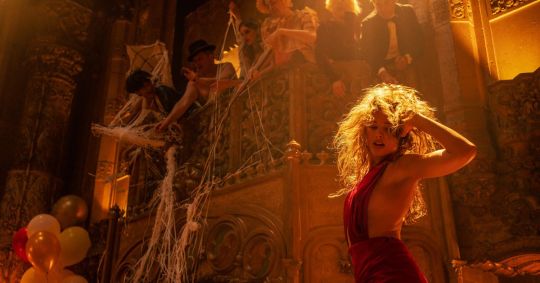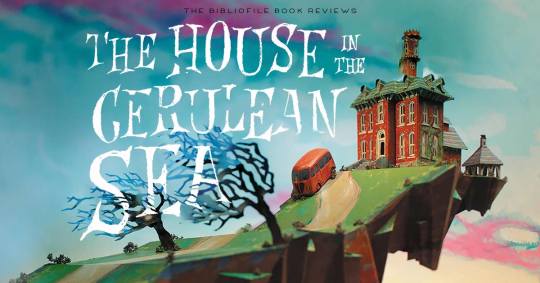Text
Red White and Sexy Blue
From the premise, this appears to be a modern day romance akin to Disney fairytales designed to make readers swoon. And while it partially delivered on that front, cheeky fluffy romance and all, what happened in between never went in any directions l had expected. By the time I finished the book, I was left with a sense of uncertainty and raised eyebrows, in the end, what was all that about?
Was it a fairytale? maybe. Was it an advocate for social injustice? Maybe. Was it about bisexual inclusivity and representations? Maybe that also. The book bears an incredibly intriguing and sexy premise, but Casey Mcquinton's attempt to tackle every social justice issues under the sun sometimes bogged the central love affair . At times, it can seem as though the entire book is being used as a platform to make political statements rather than to tell a compelling not-your-everyday romance between a prince and first son of the president.
But amidst the political noise, the books maintain and delivered its romanticism. The novel's most quiet and vulnerable moment comes in when Henry sneaked Alex into the Victoria and Albert Museum, which reminded me of the Planetarium scene from La La Land, in timely pauses like this that the book finds itself right back where it started, as a love story between two confusing teenagers trying to find their place in the big big world.
The characters are well-rounded and complex, and their humors as well as struggles feel genuine and relatable enough (even if our protagonist comes off as unbearable sometimes). The novel (while briefly) explores themes of bisexuality identity, family in a way that feels fresh and engaging, also addresses issues like homophobia and racism, making it a timely and relevant read. There's lot to redeem if we leave out the political ranting.
Overall it still it serves its purpose of being a young adults novel that intend for you to swoon over. Though hardcore "enemy to lovers" fan might feel underwhelmed, as tension was laid out but never pushed to its full potential. The build-up between Alex and Henry lacked the necessary intensity to create friction between them. (spoilers: it took them about 100 pages to get to sex). Personally the book doesn't owe anyone to adhere to the typical enemy-to-lover formula, but in settings like these, smart exposition will go a long way in crafting timeless chemistry.
At it's best it's a sexy, fluffy contemporary romance, that (occasionally) nails teen-angst, witty coming-of-age humor, and the crisis of being in love and confused in your 20s. At it's worst it's a predictable rose-colored view of society infused with on-the-nose political propaganda. Final Rating: B-
____________________________________________________________
(Spoilers ahead)
What I like The humor (Henry trying to hum God Save the Queen to get rid of a boner was hysterical) The witty bantering, not just Henry and Alex, but also June, Nora and Ellen create fantastic chemistry, and really portrays politicians as comical and troubled as all of us normies are.
My favorite characters undoubtedly Henry, but what's attractive, beyond his intelligence and wit, is our insight into his complex personality. There is certain endearment in seeing the depth that someone kept hidden behind their reserve and guarded public appeal, a kind of wonderfully earned intimacy, the more sexier when its the prince of England.
What put me off Given the context that Casey McQuiston was motivated to created this perfect liberal world (according to the book' note, she felt hopeless after the 2016 election's results) it makes sense that she would draw up this magical rose-colored political landscape as a way to cope with the situation. It is undoubtedly the world we all hope to live in, but the overall execution felt forceful, even for someone who isn't well-versed in American politics like I am. Even I can tell, some of the UK's representation sounds rather stereotypical and misleading.
It would be better if had it been a piece about the cultural clash between American and English's culture. Both Alex and Henry have very rich and fascinated background, they are both knowledgeable in their respective nationality and heritage. It's gonna be fascinating to see to see these two banter on their differences.
Would I read it again? Yes, the book is generally quite entertaining and Henry and Alex have impeccable chemistry, the overall premise is simple enough to get me off my reading slump (if you only include the spicy parts and exclude whatever migraine-inducing politics there was in between)
This is perfect for when you need to pick up a hopeful, lighthearted and enemy-to-lovers story that will make you inevitably blush not recommended for Republican, conservatives, or someone who hates getting involved in politics at all.
5 notes
·
View notes
Text
“The world is a weird and wonderful place. Why must we try and explain it all away?” ― T.J. Klune, The House in the Cerulean Sea
0 notes
Text

Babylon and all the missing "Why"
Imagine seeing the painting "The Last Supper" without knowing who Jesus is (here's a hint: it's just a group of white guys in colorful clothes having lunch). Damien Chazelle's Babylon is some what the same, unless you already have a passion for filmmaking, or yourself is an artist, this 3 hours long "letter to filmmaking" might fall flat.
It's hard for anyone to sympathize with the main characters If we don't know who they are. The 3 hours runtime and mutiple storylines robbed Babylon the ablity to dig deeper, the whole movie felt like just the tip of the iceberg,
Babylon tried to refer to filmmaking almost like a drug, the movie set as a euphoria, but it's good drug, in the name of beauty, pain and seems miniscule. Yet there have been movies about sacrificing in the name of art (see my list of the Obssesed Artist). All the loud party-ing and coke-snorting pulling the movie away from the point it needs to make, it's just a really flashy Power point presentation from Damien Chazelle on how rotten Hollywood is
But credits where credits due, Babylon out-win every movie this year in terms of Production Design and Soundtrack (yes, even Avatars 2). The fever dream aesthetics. Damien Chazelle flex his filmmaking skills, and it pays him off. The humor pays off here and there too, but
What makes it so great The dizzying, shimmering, well-choreographed sequence of partying and dancing, sets up the
It would be better if this was a mini-series from HBO, with more runtime and historical context, this might have the potential to be one of the greatest series off this century.
Would I see it again? Maybe...In 10 years, when I'm drained of all my creativity, when I lose hope in making art that means something, I might pull this up again, maybe then I can finally get it
What made me wiggle my feet The iconic te amo te amo te amo by Diago Calva, being blindy in love with someone is a romanticism at its best.
Who I love the most Margot Robbie as Nellie La Roy
1 note
·
View note
Text
House in the Cerulean Sea

Personally, I'm not fond of fantasy novels, keeping tabs on the intricate web of magical creatures and complex universes can get challenging (I had to look up fan-art for this book more than once, thankfully the art has been amazing). Yet The House in the Cerulean Sea is not your typical fictional conquest of mythical beasts, or a dark twisted journey to a bewitching forest, rather a wonderful and lighthearted story on prejudices, and a reminder to us all, that there's more to life on earth than the naked eye.
"The House in the Cerulean Sea" follows Linus Baker, a quiet and reserved caseworker at the Department in Charge of Magical Youth (DICOMY). Linus' life takes an unexpected turn when he is tasked with investigating a group of orphans with magical powers, residing at the mysterious Marsyas Island. Along the way, he learns about the true meaning of family, friendship, and finding happiness in unexpected places.
One of the things that set this book apart is its ability to seamlessly blend the fantastical with the mundane, creating a world that feels both familiar and magical at the same time.
The characters are the true stars of the show, each one unique and lovable in their own way. From the gentle and kind Arthur Parnassus, the caretaker of the orphanage, to the mischievous and adorable children who call it home. The most enjoyable parts of the book is the children bantering and rambunctious daily activities.
While the story may seem light-hearted at first glance, it also has a powerful message about the importance of embracing diversity and fighting against discrimination. The story's overall set up and the juxtaposition of the character's lives creates wonderful friction for such conversation. Arthur and his children on a whimsical island, Linus in a grim corporate desk-job, between the ever-raining city and the sun-filled island . Arthur and Linus both have their reasons to stay within their respective world, is something I relate to. As a (practicing) adult, I know what regulations are made for, but color it with obsession and rules become limitation, cover our eyes from the wonderful thing humans can make. That's why most of us will slip right into misconceptions and stereotypes in order to avoid the discomfort of confronting our own ignorance. We blind ourselves, just because we can't handle how much of our kind we haven't understand. The House in the Cerulean Sea raises a tough but important question about our tendency to categorize people (and worse, segregated them) just to make it easier to understand the world.
What made this whole adventure less fulfilling, is the heavy handed approach and repetitious preaching. The moral lessons that TJ Klune tried to get through aren ill-intention by any means, but being too one-the-nose can feel forceful (especially when I already got the point made halfway through the book). With a bit more restraint and smarter exposition, this book could have been an absolute modern day classic.
Delightfully goofy at times, charming and kindhearted at others, The House in the Cerulean Sea is a beautiful little gem, a whimsical adventure with family at its heart. TJ Klune managed to tell an enchanting tale of love and acceptance touching on important issues, all the while bringing joy and laughter. I'm glad, for once, fantasy novels can just be about confronting our fears and not slaying the head off a dragon.
Final Rating: B+
__________________________________________________________
(Spoilers ahead)
What I like The chemistry between Arthur and Linus (goals tbh), their arguments give off old-married couple vibes.
My favorite characters Chauncey, an amorphous blob who aspires to be a bellhop. Chauncey's simple dream remind an overachiever like me that sometimes its best to not overthink your goals in life.
What put me off towards the end the writing was a little bit over-sentimental, and felt like the narration was rushing to get to a conclusion.
It would be better if the book had discussed more on both of Arthur and Linus's past and backstories, I'm curious to know more on why they have come to nourish a love for protecting children. Also, while the children are fun, the book didn't spend time on the world-building. A sequel could benefit this, should we get to know more about the magical creatures and the world they inhabit
Would I read it again? Yes, people described it as a warm hug. And as every hugs in the world go, you always need it most during
This is perfect for times when you need something warmth and uplifting, not recommended for people who don't believe in magic (seriously what's wrong with you)
0 notes